Akepa gives our team the freedom to work where and however they like. Here’s Roma Dhanani giving her perspective on remote working from Amsterdam, the Netherlands.
If you’re considering living and working in dreamy Amsterdam, you’re certainly not alone. This charming city is often listed as one of the best places to live in the world. Maybe you’ve landed a remote job here, you’ve got a job that allows you to work from wherever, or you’re a freelancer. Whatever your situation is, we know just how tempting this city can be.
Like all places in the world, remote work in Amsterdam has its good and bad. Here are some pros and cons to consider.
It’s crowded… but doable
My experience is that Amsterdam is less crowded than some other capital cities. Before you come jumping at me, I’ve lived in Madrid and Paris, and let me tell you, those cities are population dense. Even though Amsterdam attracts heaps of tourists, and it can be a hectic city at times, the most crowded areas such as Dam Square, Kalverstraat, or Albert Cuypstraat can be avoided. Amsterdam can offer a balance between crazy and calm.
On that note, what I love about Amsterdam and Dutch cities in general, is that there are a lot of green spaces intertwined with the city. Parks and forests are often easily accessible. Although virtually all the greenery in the Netherlands is man-made and nature is declining in the country, you at least have the option of sitting in the grass if you need a break from the overstimulation (or in Dutch, ‘prikkels’) of city life. Amsterdam has around 30 parks, roughly half of which are fairly quick to get to from the center.
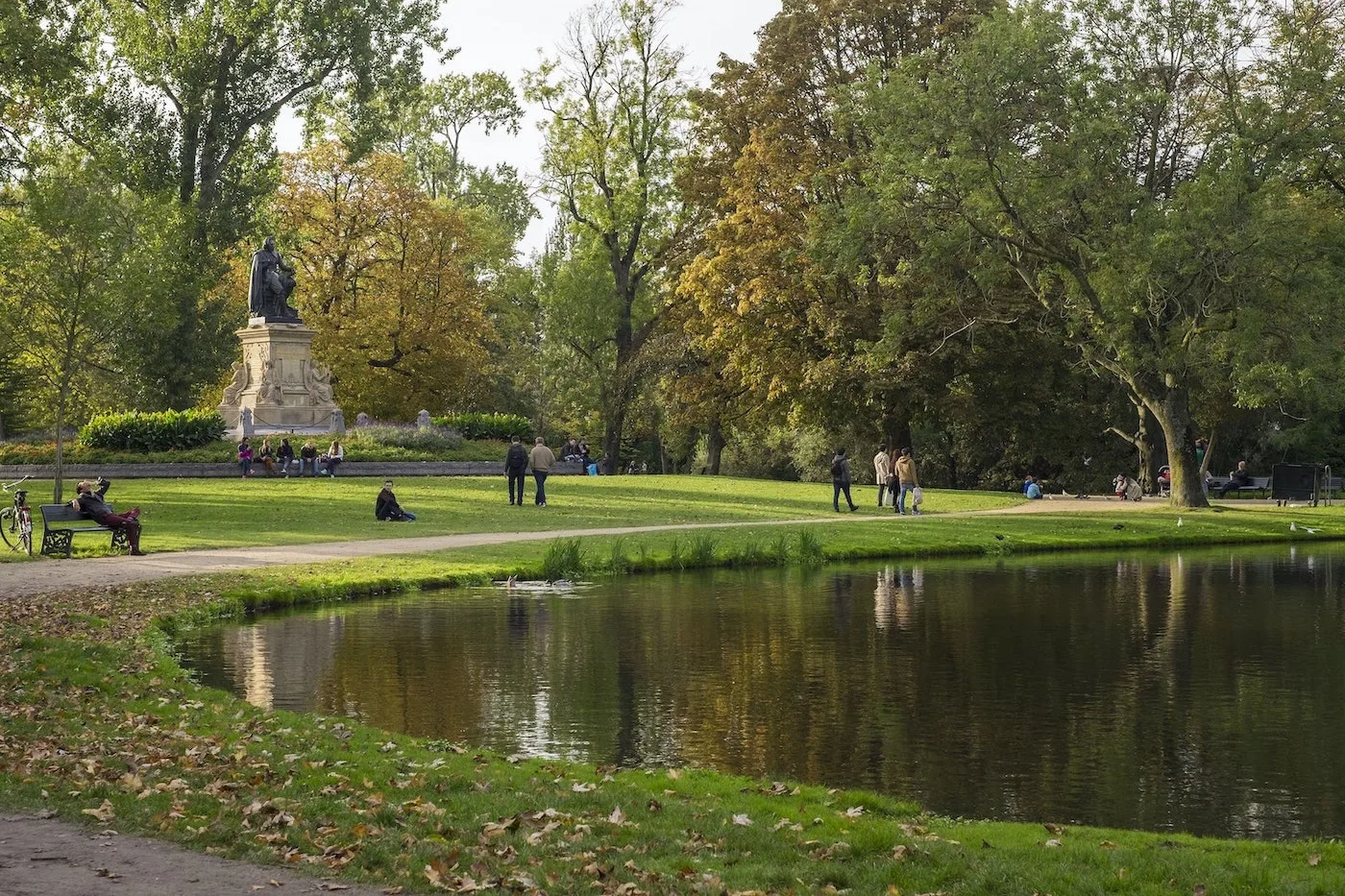
Living costs have savagely increased
Amsterdam is just one of the many European (and global) cities facing a housing crisis. Not only do you need to make good dough for a decent place in this city, but you also need luck up your sleeve. Do not expect the cost of an apartment in Amsterdam to be reflective of its value; things are not the same as they were years ago. Unless you’ve managed to get social housing, prepare to pay easily €950 for a shared house or €1500 for a one-person flat.
Moving to a place that’s currently experiencing a housing crisis can be an important factor to consider. Not only is it a financial burden on you, but maybe it stirs up a guilty feeling about further contributing to the crisis. Still, remember that many say the problem has more to do with policy changes than anything else.
Apart from housing, the overall living costs have soared over the years. If you’re curious about what kind of numbers you’re looking at, check out this guide which breaks it down into sections.
Remote work friendly
Finding cafes with good coffee and high-paced internet to work from or co-working spots with a community of remote workers is not a problem you’ll have. This attractive list covers not just regular cafes but also facilities designed for remote workers, membership-based or pay-by-the-hour working spaces, and libraries.
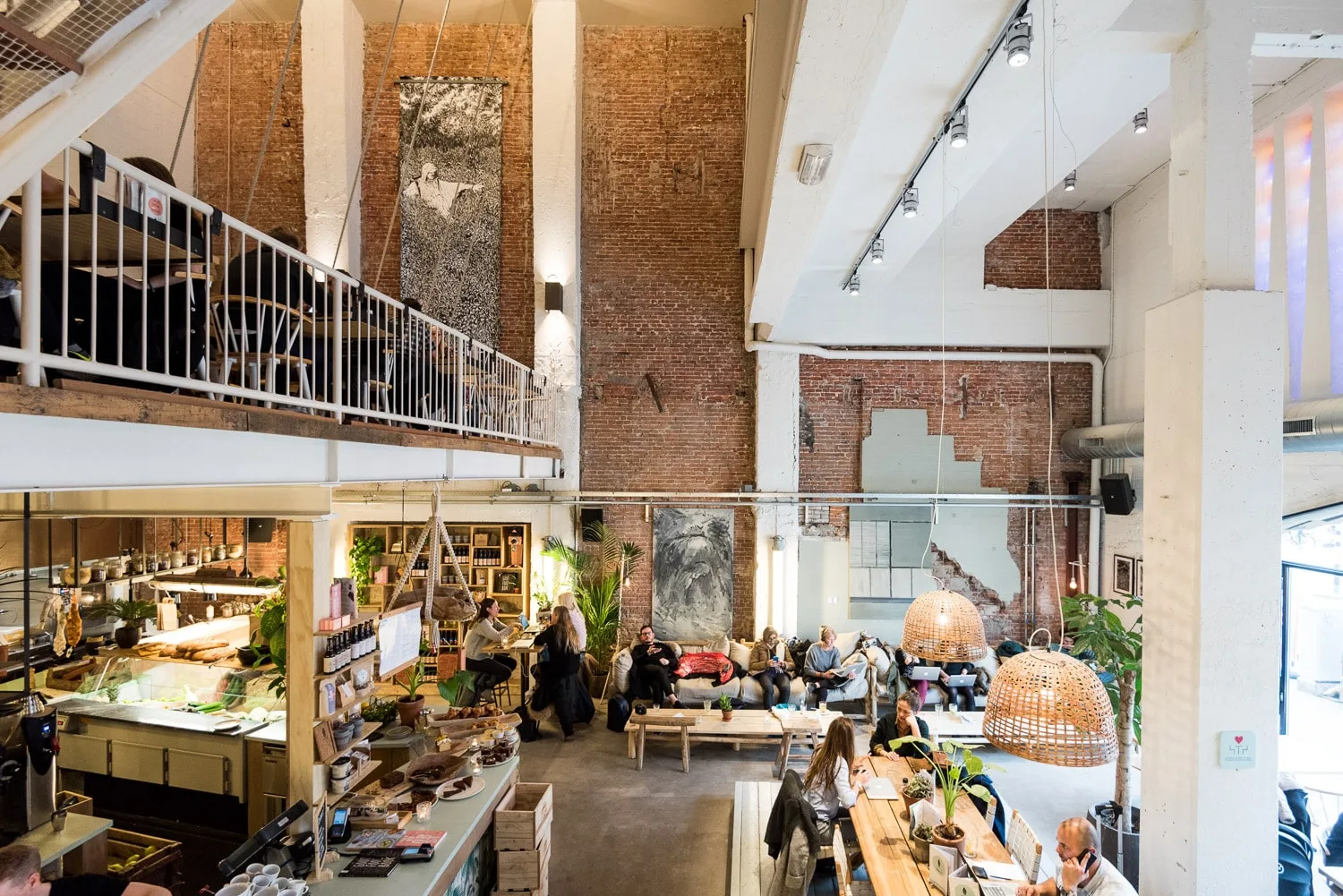
Included in the list is Zoku, a ‘business hotel’ – a place for remote workers to live and work somewhere for between a few days to a few months – located in 4 cities throughout Europe, including Amsterdam. It’s designed to create a coworking community with regular events for networking and socializing. After all, remote work can get lonely and this concept does fill in a market gap. There are a few other remote work hotels with similar concepts! Given that Airbnb is limited in Amsterdam and finding a room to rent can sometimes feel impossible, this kind of hotel could be perfect for remote workers, especially for short stays.
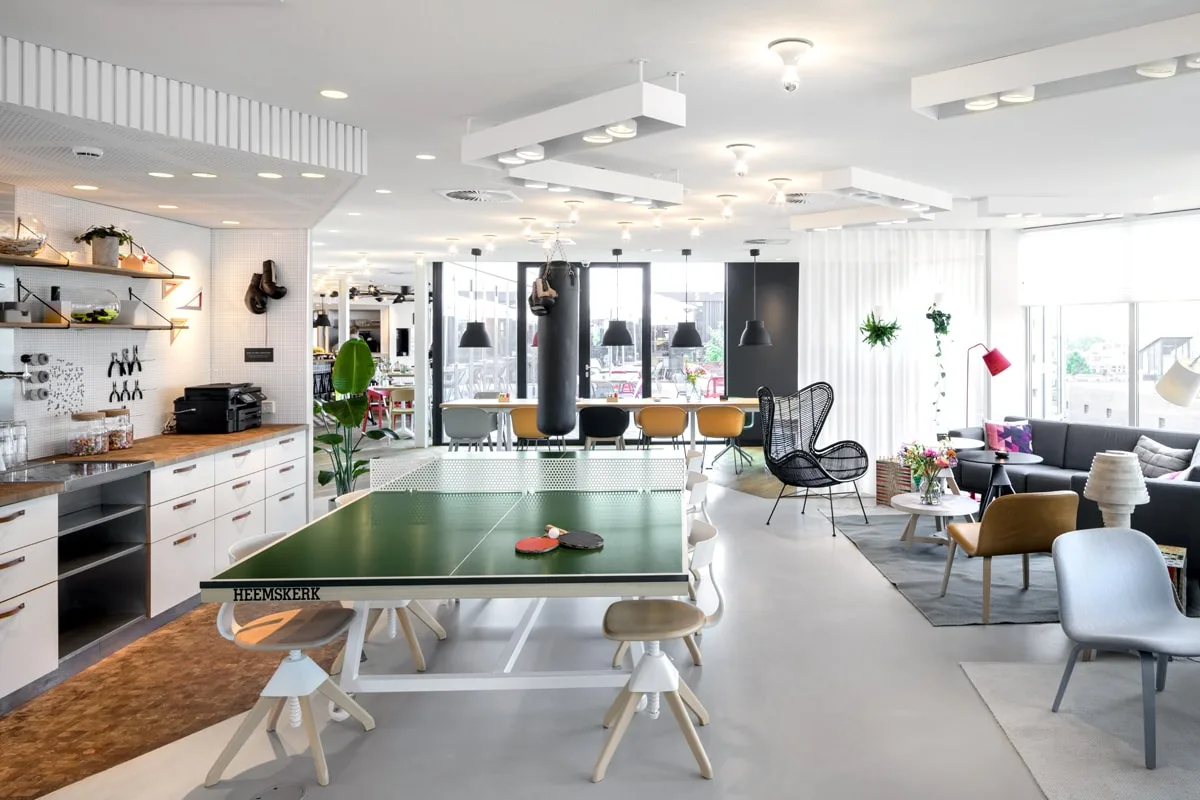
There is also the Flexible Working Act, which is a bill that allows employees who’ve been working at a company for over 6 months to request to work from home. The employer can refuse the request, but it must be substantiated.
Dutch employers prefer hybrid
The Netherlands ranked #2 in the Global Remote Work Index 2023. However, note that in the Netherlands, fully remote work is rare. Hybrid work is the standard, with employees working on average 2 full days a week from home. The Netherlands topped all EU countries with their work-from-home rates, with 52% of Dutch workers reporting working from home occasionally in 2023. That’s with the emphasis on ‘occasionally’! Although the Netherlands is one of the countries leading the way in remote work, the number of people who work remotely full-time has declined between 2021 and 2023, and there still seems to be a preference for hybrid work over fully remote or fully in-person.
Although, fully remote companies do exist. And more companies are turning to progressive forms of work, opening up to employees having complete freedom of which working model they choose. So you can get lucky. Keep looking, don’t give up!
On another note, if you’re a freelancer and/or this is an option for you here, in 2023, maybe you’ll be happy to know that the country also held one of the highest numbers of freelancers in the EU, at 16.5% of the population.
Everyone speaks English
If you are worried about any sort of language barrier, don’t be. Practically everyone in Amsterdam speaks English – it often even feels like the default language over Dutch. Walking into stores, taking classes, finding cafe jobs – speaking only English and no Dutch isn’t an issue.
Whether all Amsterdammers like that or not… is a whole other topic we won’t get into. Like everywhere else, some people prefer speaking their mother tongue which they’re more confident in, and of course that’s also fair.
There’s also a massive international community in this city – you’ll find all kinds of people. And coming from someone who was raised on an island with a melting pot of diversity, that means something.
Is there a digital nomad visa?
Unlike some other European countries, such as Spain and Portugal, the Netherlands doesn’t offer a specific digital nomad visa yet. But remote workers from outside of the EU can apply for a long-stay visa and work as freelancers.
For those seeking full-time employment without setting up their own business, which could involve working remotely within Amsterdam for a business overseas, an Employer of Record (EOR) in the Netherlands can help back legal employment and payroll compliance. One of those companies who can help with that is Rivermate, whose HQ is right by the picturesque canals in the centre of the city.
This city is just loveable
Maybe I’m biased. But Amsterdam is a special place. It’s a city that embodies a culture of freedom, creativity, and self-expression. You can bike everywhere. You don’t need to drive a car or take public transport – although you can if you wanted to. You’ll meet people who come from so many different worlds, allowing you to make unique connections. The city never gets boring. There are endless museums, exhibitions, street markets, and films. But one of my favorite things to do is simple: wake up early on a summer morning and go for a walk to soak in the peaceful hours. It’s unparalleled. My last thing: the Netherlands has amazing intercity train connections. Albeit expensive, it’s well-connected and clean. You can get to loads of other charming cities in under an hour. And it is totally worth getting out of the Amsterdam bubble to experience this.
The Netherlands doesn’t offer a specific digital nomad visa, but remote workers can enter with a long-stay visa and work as freelancers.
Interested in learning more about remote work in some of the world’s other places? Have a look at some of our other guides below:
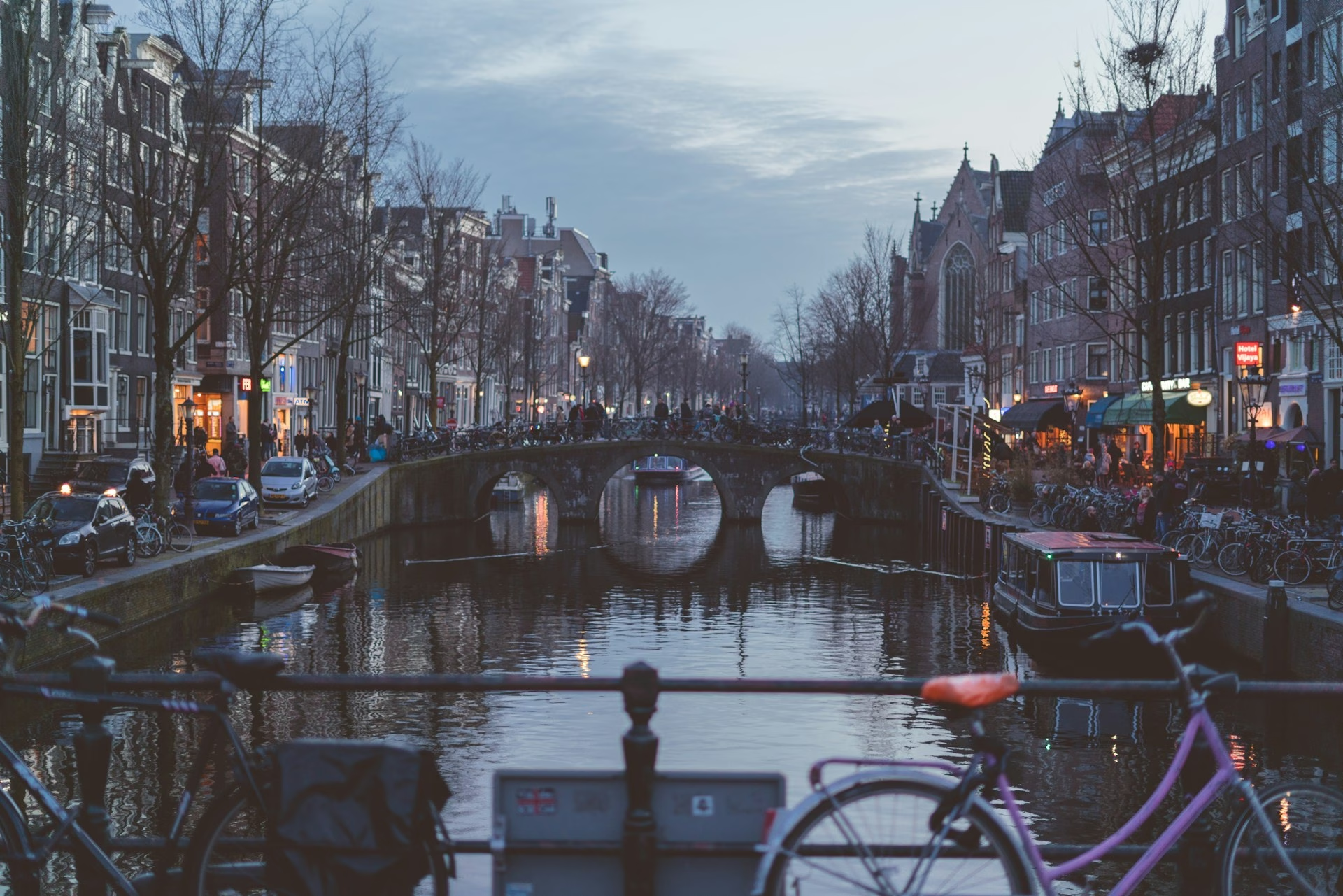
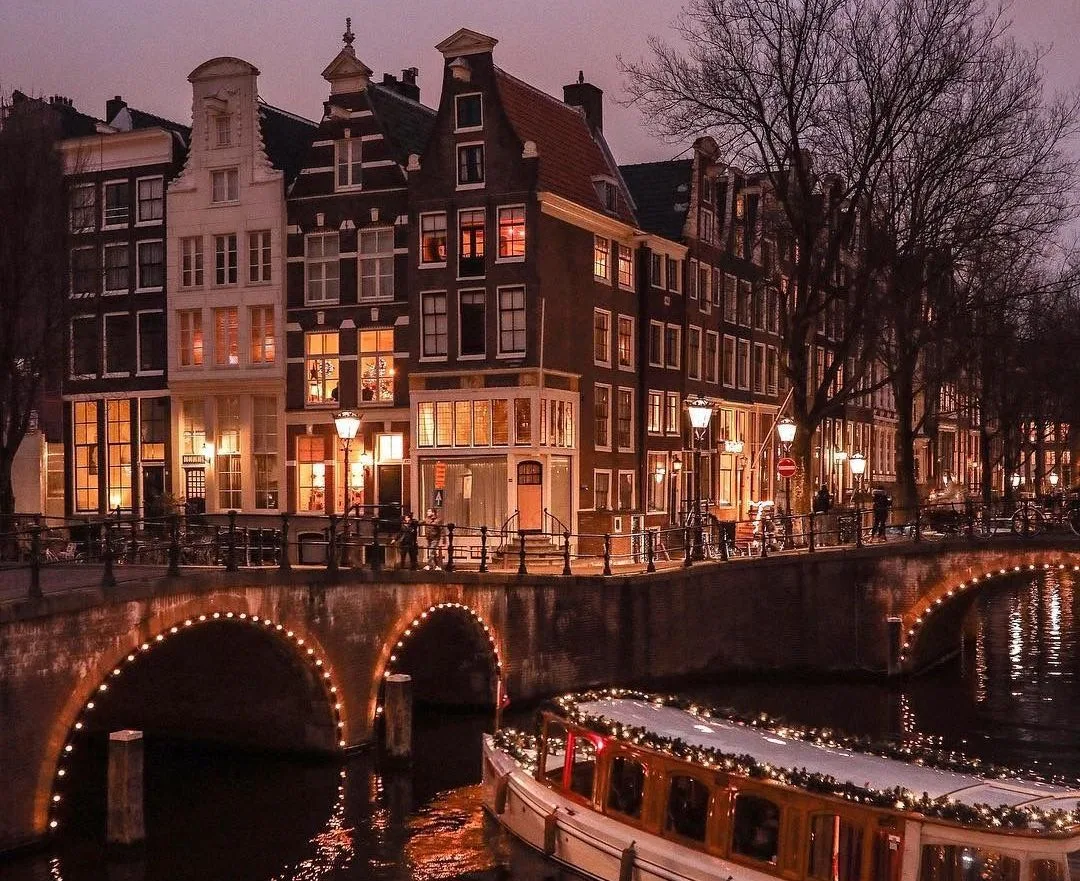


Leave a Reply